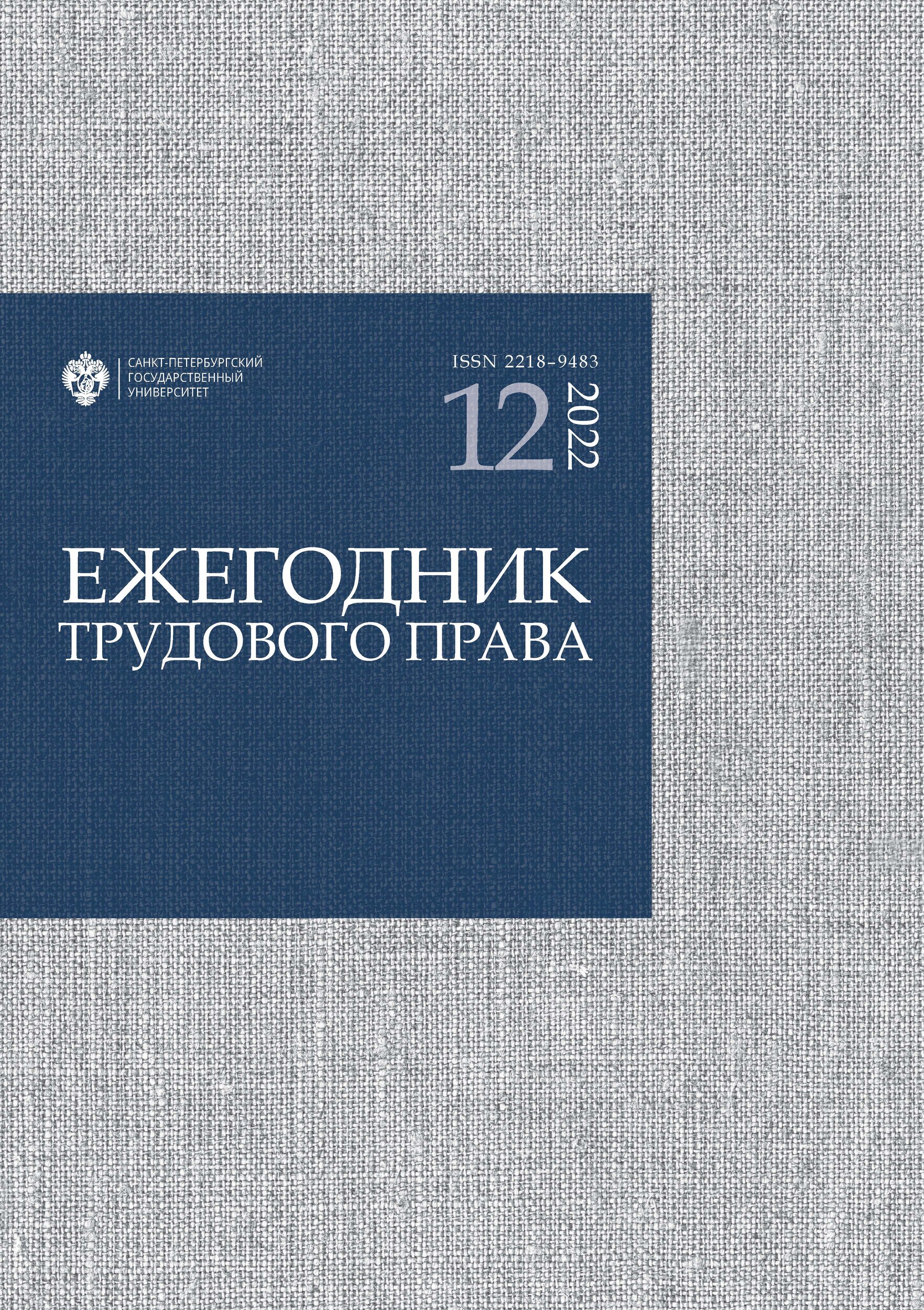Legal issues of reforming the social insurance system of employees during the pandemic
DOI:
https://doi.org/10.21638/spbu32.2022.102Abstract
The article analyzes certain legal aspects of compulsory and voluntary insurance during the pandemic in connection with COVID-19. Since Article 7 of the Constitution of Russia pro-claims the Russian Federation to be a social state, an analysis of these aspects is currently relevant, using a comparative legal and system-structural research methods. Among the most important problems currently considered are improving the mechanism of compulsory social insurance for temporary disability and in connection with maternity, as well as voluntary in-surance of those types that are social in nature, i.e. voluntary medical insurance and insurance against illness. It is necessary to optimize the composition of types of compulsory social insur-ance and to clarify the grounds for provision in connection with COVID-19, in particular, by including coronavirus infection in the list of diseases that entitle one to the payment of ben-efits for caring for a sick child for a longer period, as well as by securing the right to benefits for one of the parents in the event that the child declares additional holidays due to quarantine. In addition, it is proposed to legislate the concepts of accident and disease not only in relation to compulsory social insurance against industrial accidents and occupational diseases, but also in relation to voluntary social insurance, which can be done in legislation on organizing insurance businesses. To resolve the issue of expanding the coverage of citizens with voluntary social insurance in case COVID-19, it is necessary to approve the minimum requirements for this type of insurance by the instruction of the Bank of Russia.
Keywords:
COVID-19, social insurance risks, voluntary social insurance, medical care, compulsory insurance for temporary disability and disability in cases of the onset of maternity, social protection
Downloads
References
Библиография
Истомина, Елена А. 2017. «Социальный риск как основа социальных прав в законодательной терминологии.» В От социальных прав к социальному праву (VII Пашковские чтения): сборник статей по материалам Международной научно-практической конференции (Санкт-Петербургский государственный университет, 24–26 февраля 2016 года), под ред. Александра В. Кузьменко, 70–75. Санкт-Петербург: Центр социальных и правовых технологий.
Корсаненкова, Юлия Б. 2021. «Некоторые проблемы упорядочения межотраслевых связей трудового права с правом социального обеспечения в процессе совершенствования трудового законодательства.» Трудовое право в России и за рубежом 2: 26–29.
Узденова, Фарида Э. 2018. «Проблемы реформирования системы обязательного социального страхования.» Молодой ученый 21 (207): 402–405.
References
Istomina, Yelena A. 2017. “Social risk as the basis of social rights in legislative terminology.” In From social rights to social law (VII Pashkov Readings): сollection of articles based on the materials of the International Scientific and Practical Conference. (St Petersburg State University, February 24–26, 2016), ed. by Aleksandr V. Kuzmenko, 70–75. St Petersburg, Tsentr social’nykh i pravovykh tekhnologiy Publ. (In Russian)
Korsanenkova, Julia B. 2021. “Some problems of streamlining intersectoral relations between labor law and social security law in the process of improving labor legislation.” Trudovoe pravo v Rossii i za rubezhom 2: 26–29. (In Russian)
Uzdenova, Farida E. 2018. “Problems of reforming the compulsory social insurance system”. Young Scientist 21 (207): 402–405. (In Russian)
Downloads
Published
How to Cite
Issue
Section
License
Articles of "Russian Journal of Labour & Law" are open access distributed under the terms of the License Agreement with Saint Petersburg State University, which permits to the authors unrestricted distribution and self-archiving free of charge.




